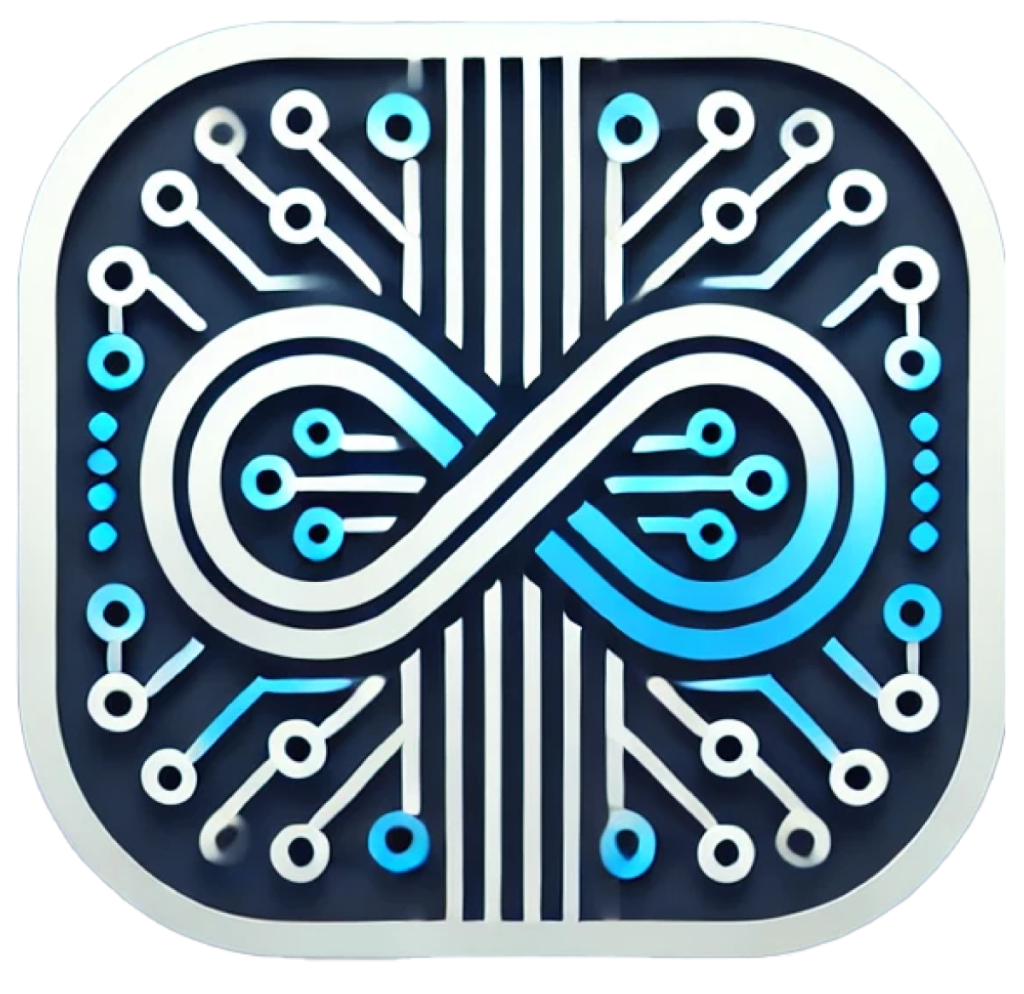Just as you strive to provide the best educational experience for your students, utilizing effective cognitive assessment tools is important in understanding their learning capabilities. These tools can help you identify individual strengths and areas for improvement, allowing for tailored instruction that meets each student’s unique needs. In this post, we will explore some of the best cognitive assessment tools available for schools, offering insights into their features, benefits, and how they can enhance your educational strategy.
Importance of Cognitive Assessment in Educational Settings
A cognitive assessment in educational settings serves to identify and measure the intellectual capabilities of students, helping educators tailor their approaches to meet individual learning needs. By understanding a student’s cognitive strengths and weaknesses, you can implement targeted strategies to enhance their academic performance and overall development. This assessment not only informs instructional practices but also fosters a supportive learning environment that embraces diverse cognitive profiles, ensuring that no student is left behind.
Understanding Cognitive Skills
Along with academic knowledge, cognitive skills such as attention, memory, reasoning, and problem-solving are vital for effective learning. These skills enable you to process information, make connections, and apply what you’ve learned in various contexts. Assessing these cognitive abilities can provide valuable insights into how your students think and learn, allowing for a more comprehensive educational experience tailored to their unique cognitive landscapes.
Role in Student Development
Cognitive assessments significantly shape the development of your students by identifying areas where they may struggle or excel. These assessments can inform instructional decisions and interventions, helping you provide personalized learning experiences that are vital for growth. By understanding cognitive profiles, you can design educational activities that challenge your students while catering to their individual needs, ensuring a more effective and engaging learning journey.
Understanding cognitive assessments enables you to make informed choices on how to nurture your students’ potential effectively. When you identify a student’s specific cognitive strengths, you can align learning strategies that enhance engagement and retention. On the flip side, recognizing areas needing improvement allows you to implement targeted interventions. This balanced approach helps in creating an inclusive learning atmosphere that fosters growth and development in every student, ultimately preparing them for future success.
Types of Cognitive Assessment Tools
Assuming you’re looking to evaluate cognitive abilities in students, it’s necessary to choose the right assessment tools. The landscape includes various methods that cater to different needs. Here are some common types:
- Standardized Tests
- Informal Assessments
- Observational Assessments
- Dynamic Assessments
- Performance-Based Assessments
Thou will benefit from a thorough understanding of each tool’s advantages and limitations to make informed decisions.
| Type | Description |
| Standardized Tests | Formal evaluations with established scoring systems. |
| Informal Assessments | Flexible methods like quizzes and projects. |
| Observational Assessments | Monitoring behavior in real-time settings. |
| Dynamic Assessments | Focus on learning potential through guided tasks. |
| Performance-Based Assessments | Evaluate skills via real-world tasks. |
Standardized Tests
Behind standardized tests lies a framework that measures students’ cognitive abilities against a consistent set of criteria. These tools yield quantifiable results useful for comparison. They often include multiple-choice questions, performance tasks, and a scoring rubric, which allows you to gauge students’ proficiency levels in a standardized manner.
Informal Assessments
Beside standardized tests, informal assessments offer a more personalized approach. These methods often involve projects, class participation, and quizzes, tailored to understand individual learning styles and needs. You can choose flexible evaluation techniques that adapt to the classroom context, making them highly effective for formative feedback.
Informal assessments provide valuable insights into your students’ cognitive abilities, allowing for immediate adjustments to instruction. Through these assessments, you engage with students directly, fostering an environment where they feel comfortable showcasing their skills. By prioritizing formative assessments, you can identify areas requiring additional support or enrichment tailored to each learner’s pace.
Top Cognitive Assessment Tools for Schools
While selecting cognitive assessment tools for schools, it’s crucial to consider those that provide a comprehensive evaluation of students’ intellectual capabilities. There are several established tools that offer insightful data, helping educators tailor their teaching methods and support students’ unique learning needs. Understanding these tools will empower you to make informed assessments, ultimately enhancing the educational experience for your students.
Wechsler Intelligence Scale for Children (WISC)
After its introduction, the Wechsler Intelligence Scale for Children (WISC) has become one of the most widely used intelligence tests for children aged 6 to 16. It focuses on a variety of cognitive skills, including verbal comprehension, perceptual reasoning, working memory, and processing speed, providing a balanced view of each child’s intellectual abilities. Implementing WISC in your assessments can lead to effective strategies for skill development.
Stanford-Binet Intelligence Scales
On the other hand, the Stanford-Binet Intelligence Scales is a classic cognitive assessment tool that evaluates a wide age range, from toddlers to adults. It measures various cognitive abilities, including fluid reasoning, knowledge, quantitative reasoning, visual-spatial processing, and working memory. This versatility makes it suitable for identifying students with different learning needs and styles.
The Stanford-Binet Intelligence Scales offers a normative approach, allowing you to compare a student’s performance to their age group. The test’s adaptability means it can be administered in different formats, including verbal and non-verbal, which can help accommodate diverse student backgrounds and needs. This makes it an invaluable resource in your educational toolkit.
Cognitive Assessment System (CAS)
Tools like the Cognitive Assessment System (CAS) utilize the PASS model, focusing on Planning, Attention, Simultaneous, and Successive processing. Designed for children aged 5 to 17, CAS emphasizes the cognitive processes that contribute to learning, providing a unique perspective on a child’s intellectual strengths and weaknesses. Its development is rooted in applying theory to practice, which you can use to target educational interventions effectively.
WISC allows you to assess not just intelligence but how a child thinks and processes information. By applying the insights gathered from CAS, you can design appropriate educational strategies that align with your students’ cognitive profiles. This personalized approach enhances engagement and success in learning, making CAS a valuable addition to your assessment tools.
Woodcock-Johnson Tests of Cognitive Abilities
Beside the above-mentioned tools, the Woodcock-Johnson Tests of Cognitive Abilities provide a comprehensive evaluation of cognitive skills and processing abilities in individuals aged 2 to 90. This test assesses various domains such as general intellectual ability, specific cognitive abilities, and academic achievement, allowing you to gain a full understanding of a student’s cognitive functioning.
Also, the Woodcock-Johnson tests offer norm-referenced scores, which facilitate comparison with peers. This extensive framework provides you with insights into a student’s strengths and areas requiring additional support, enabling targeted intervention strategies that foster individual success. Utilizing these tests can greatly enhance your ability to meet diverse educational demands within your classroom.
Benefits of Using Cognitive Assessment Tools
After incorporating cognitive assessment tools into your educational environment, you may find that they offer numerous advantages. These tools help you understand your students’ learning capacities, paving the way for targeted interventions and optimized instructional strategies. By utilizing these assessments, you can create a more effective and inclusive learning atmosphere, ultimately fostering student success.
Identifying Learning Disabilities
Cognitive assessment tools serve as a valuable resource in identifying learning disabilities early on. They enable you to pinpoint specific areas where a student may struggle, allowing for timely intervention. With this information, you can develop tailored learning plans that meet the unique needs of each student, ensuring they receive the support they require to thrive academically.
Enhancing Personalized Learning
Benefits of using cognitive assessment tools extend beyond identification; they also enhance personalized learning opportunities for your students. These assessments provide insights into individual strengths and weaknesses, enabling you to customize your teaching approach effectively.
And by understanding the cognitive profiles of your students, you can tailor your instructional methods to match their learning styles. This personalization not only boosts engagement but also enhances academic performance. With more targeted strategies in place, you foster an environment where every student can excel, catering to their specific learning journey.

How to Implement Cognitive Assessments in Schools
Unlike traditional testing methods, implementing cognitive assessments in schools requires careful planning and stakeholder involvement. To ensure success, it’s imperative to communicate clearly with educators, parents, and students about the purpose and benefits of these assessments. Create a timeline for administering assessments, analyze data effectively, and provide feedback that informs instructional practices. This strategic approach helps integrate cognitive assessments into the school culture and enhances student learning outcomes.
Training Educators
On investing in educator training is vital for effective cognitive assessment implementation. You should provide professional development workshops that focus on understanding assessment tools, data interpretation, and using results to tailor instruction. This equips teachers with the skills needed to support their students and fosters a collaborative environment where educators can share insights and strategies.
Integrating Assessments into Curriculum
Among the many aspects of cognitive assessments, seamlessly integrating them into your curriculum is key to enhancing educational outcomes. By aligning assessment tools with specific learning objectives, you can track student progress and identify areas for improvement.
Hence, aligning cognitive assessments with your curriculum allows you to assess not only what students know but also how well they can apply their knowledge. Incorporating assessment results into lesson planning can guide your teaching strategies and interventions. By making data-driven decisions, you can create a more tailored learning experience, ensuring that each student receives the support they need to thrive academically.
Challenges in Cognitive Assessment
For educators and administrators, cognitive assessments in schools present various challenges that can affect their validity and utility. Factors such as cultural biases, the reliance on standardized tools, and varying developmental stages among students can complicate the assessment process. It’s vital to recognize these challenges to enhance the effectiveness of cognitive assessment strategies and ensure all students receive an equitable evaluation of their capabilities.
Cultural Bias
Before implementing cognitive assessments, it’s vital to understand how cultural bias can influence results. Many assessment tools are designed with a specific demographic in mind, which may not represent your diverse student population. This can lead to inaccurate conclusions about students’ abilities based on cultural misunderstandings rather than actual cognitive skills.
Over-reliance on Standardized Tools
Assessment methods that rely heavily on standardized tools can limit your understanding of students’ cognitive abilities. While these assessments provide valuable data, they may not capture the full spectrum of a student’s learning potential or unique strengths.
Standardized tests often reduce cognitive assessment to numbers and rankings, potentially overlooking individual learning styles and competencies. Additionally, such tools can create undue pressure on students, which might skew their performance and do not reflect the nuanced understanding that teachers develop through day-to-day interactions. It’s important to supplement standardized assessments with formative evaluations to create a more holistic view of each student’s cognitive abilities.
Summing up
The best cognitive assessment tools for schools empower you to gain valuable insights into your students’ learning capabilities and developmental progress. By selecting appropriate tools, you can tailor educational strategies to meet individual needs, ensuring that every student has the opportunity to succeed. These assessments not only support educational planning but also provide a clear understanding of cognitive strengths and weaknesses within your classroom. Exploring various options will enable you to make informed decisions that enhance your teaching effectiveness and ultimately foster a supportive learning environment for all learners.
Q: What are cognitive assessment tools, and how are they used in schools?
A: Cognitive assessment tools are instruments designed to evaluate students’ mental processes, including memory, reasoning, problem-solving, and comprehension skills. In schools, these tools are utilized to gauge students’ learning needs, identify strengths and weaknesses, and tailor educational strategies accordingly. Educators use assessments to guide instruction, track progress over time, and support personalized learning approaches to maximize student engagement and achievement.
Q: What are some popular cognitive assessment tools used in educational settings?
A: There are several widely-used cognitive assessment tools in schools, including the Wechsler Intelligence Scale for Children (WISC), Woodcock-Johnson Tests of Cognitive Abilities, and the Kaufman Assessment Battery for Children (KABC). These tools offer thorough insights into cognitive functioning and help assess various domains of intelligence. Additionally, computer-based assessments, like the CogAT (Cognitive Abilities Test), provide adaptive testing that caters to individual student’s levels and can be administered efficiently.
Q: How can schools choose the right cognitive assessment tool for their needs?
A: When identifying a cognitive assessment tool, schools should consider several factors, including the specific goals of the assessment, the age group of students, and the particular cognitive skills they wish to evaluate. It’s important to review the assessment’s reliability and validity, as well as its alignment with educational standards and instructional goals. Furthermore, schools may benefit from consulting with educational psychologists or assessment specialists to ensure that the chosen tool will effectively meet the diverse needs of their student population.




0 Comments